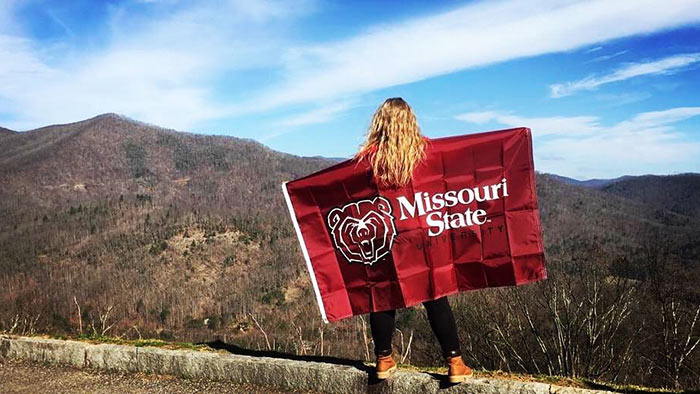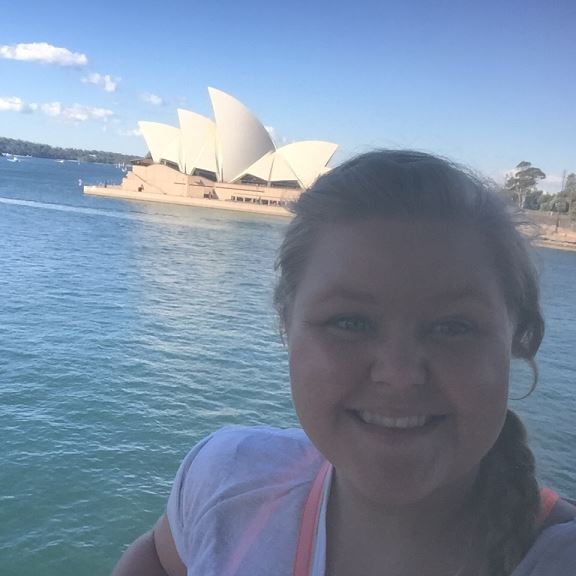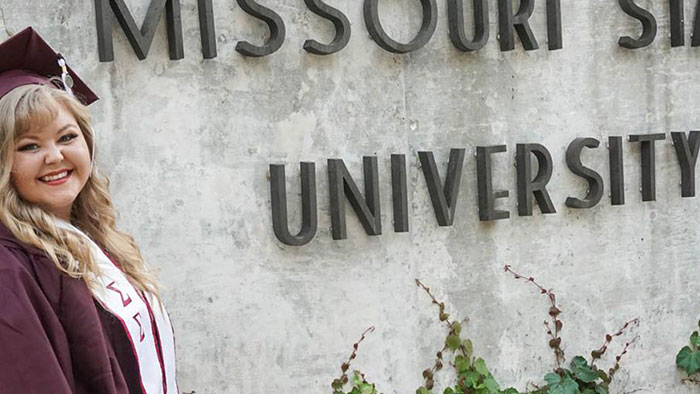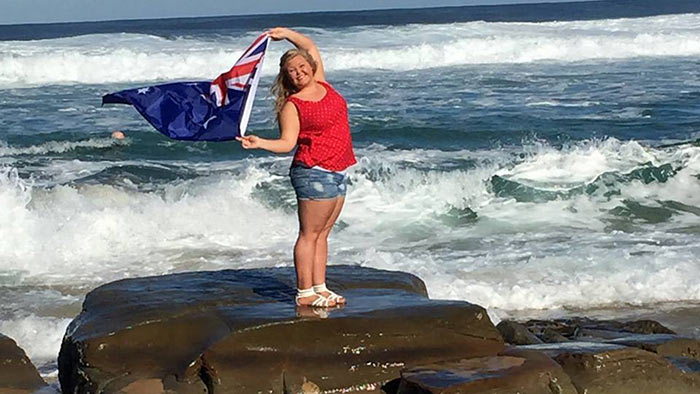Interning in Australia means you also get to experience Australia.
The wildlife, the sights and the culture.
Kenna Sheppard, an exercise and movement science major, did that in the summer of 2017.
Sheppard wanted a unique experience for her required internship.
“I love to travel but had never flown before and had only traveled (internationally) to Mexico, so I was pretty nervous about the cultural adjustment,” Sheppard said.
Life at her new ‘uni’

Sheppard researched her options. She landed a six-week internship with The University of Newcastle in Australia.
On campus, she interned at two research centers: physical activity and nutrition, and stroke and brain injury.
She bonded well with her new colleagues.
“Everyone at the uni – the slang for university there – was very welcoming and helped me transition into my new role,” Sheppard said.
On her downtime, she went sightseeing.
“I got to see Sydney, the Great Barrier Reef, Melbourne and more areas that made the trip unforgettable, all with the support and recommendations of my internship supervisor (at Newcastle), Dr. Robin Callister.”
Learning the how and why
Sheppard completed most of her internship at the physical activity and nutrition center. She explored the research side of exercise physiology.
“I hadn’t experienced (that area) in the past,” she said. “The work I did was a lot of data entry and interpretation, which was very informative to see why research trials were set up in such a specific manner.”
At the stroke and brain injury center, Sheppard worked with stroke patients. She examined the effect exercise can have on their rehab.
“The (overall) experience taught me so much about how researchers in our field gain funding, create ideas and implement trials,” Sheppard said.

Ready to apply what she learned
After graduating in May 2018, Sheppard enrolled in the occupational therapy graduate program. She wants to one day specialize in pediatrics.
Thanks to her internship, Sheppard feels better prepared for her future career.
“(The internship had) so many things that were much better than I expected, like how much hands on-experience I received,” Sheppard said. “Now, I am more prepared to do research as a professional someday.”


